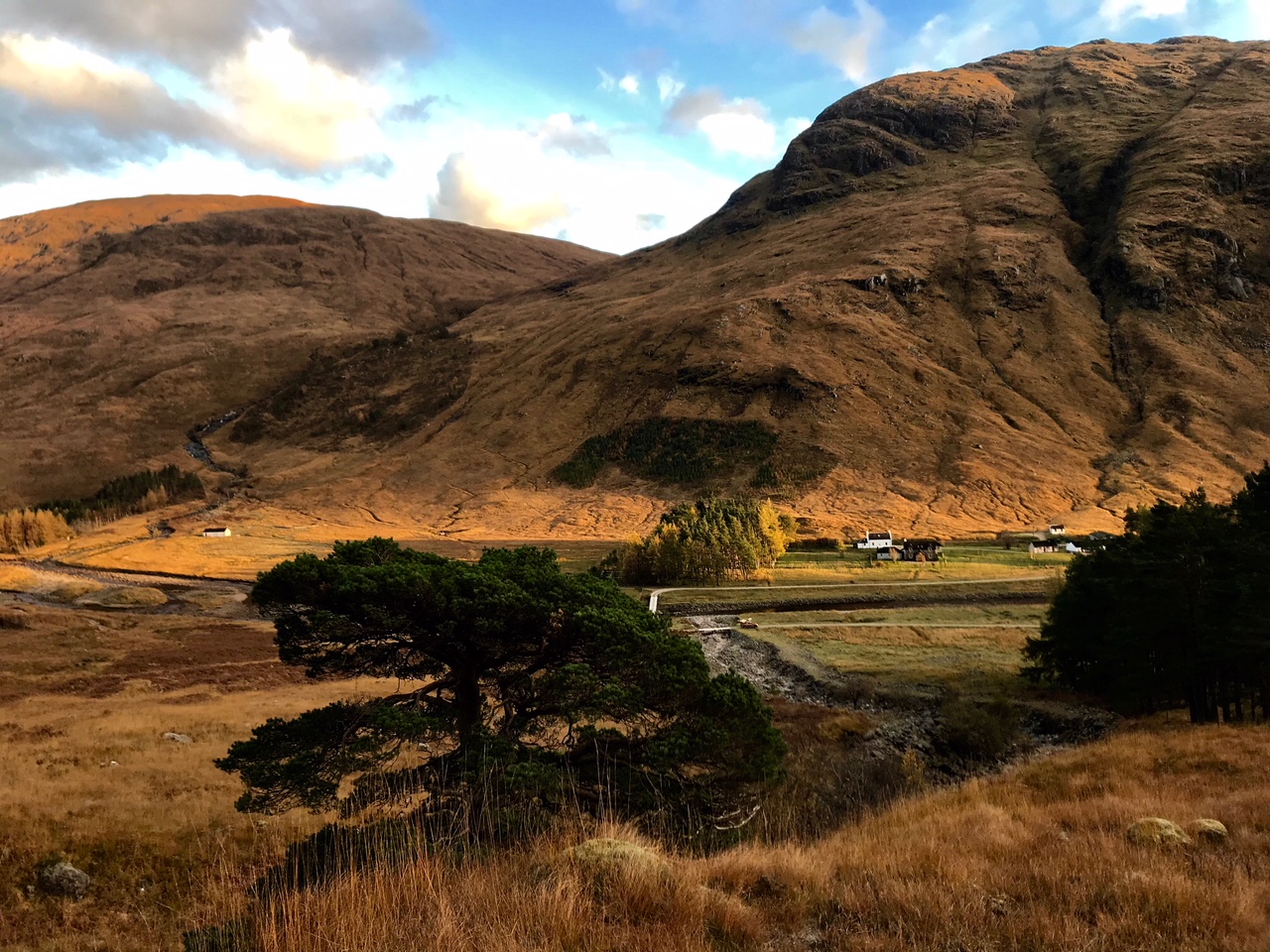Writing on a Woodcock Moon

‘The glen will show you what to write’ - Frances Ainslie
‘The hill is a place to be peaceful and absorb and be in it, then you will get out of being there what you need’ - Alasdair Ross
Back In April this year while on a nature writing course at Moniack Mhor, the guest writer, Linda Cracknell, asked us to name somewhere we loved. I said Glen Kinglass, a place I had only set foot in a handful of times in the twenty-five years since first going there, but a place that was a regular go-to place in my imagination. It’s a funny thing, but ever since naming it that April night I’ve visited Glen Kinglass again and again - the power of words spoken out loud!
In mid-May I went to visit my friend, Alasdair, a deer stalker and the sole occupant of Glen Kinglass. Sitting on his bench looking across a sun-bright Loch Etive, we came up with the plan to host a writing retreat. We worked out that we could accommodate six people between the Stalker’s House and the Shepherd’s Bothy. Five months, and many slow walks and enthusiastic talks later, it happened; around a full moon, in the midst of the red deer rut and with the first snowfall on the hills, the glen shared its very best with a wonderful group who had come to explore words and place.
We wrote, we talked, we listened. We wandered up burns, amongst ruins, over swing bridges. We watched golden eagles hunting, white tailed sea eagles passing over, waxwings feasting on berries on their route south. We woke in the night and heard stags roaring. We sat by fires and drank sloe gin and Jura whisky. We ate well. We laughed. We discovered the joy of having a dog amongst us.
We looked for salmon but saw none, we heard how their numbers were in drastic decline. On the last morning I read from the opening of Sherman Alexie’s short story ‘The Toughest Indian in the World’: Being a Spokane Indian, I only pick up Indian hitchhikers. I learned this particular ceremony from my father, a Coeur d’Alene, who always stopped for those twentieth century aboriginal nomads who refused to believe the salmon were gone. I don’t know what they believed in exactly, but they wore hope like a bright shirt. After the workshop, walking back from the bothy for lunch, we found Alasdair at the river. He was smiling and showed us fourteen salmon in the pool. Some of us went downriver and swam, clad in wetsuits and hope.
We’d driven in through sheets of rain and hills white with water, we drove out four days later through folds of gold and amber. It was a wrench as the group said their goodbyes. Later, after tidying the houses, collecting the laundry and chatting through the past few days, Alasdair and I walked to the Scots pine trees up on the side of Beinn nan Aighenan. Through the tangle of red-pink branches I watched the last of the afternoon sun slide across the Stalker’s House, the Lodge, the deer larder, the sheds, the hill park, the Shepherd’s Bothy. I felt the group’s absence as a new bright presence in this place.

It was dark when we drove back down the glen. A quail-sized bird whirled upwards, another scuttled in the birch leaves beside the track. ‘Woodcock, they’re back,’ said Alasdair, ‘they’ll have come in on the full moon.’ We watched the bird on the ground for a while, how it lifted each leg with slow careful knees. 'He’s buggert,’ said Alasdair. We drove on in silence. I was awed by the woodcock’s arrival, by their long journey, by the whole astonishing and cyclical and odds-defying nature of life.
Plans are afoot for further Glen Kinglass writing retreats in May and October 2019.



